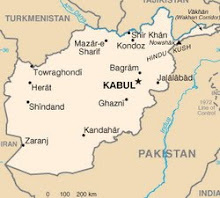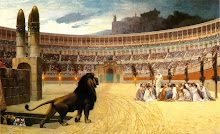.jpg) ISTANBUL(Compass Direct News)Following a hearing on Saturday Feb. 7th, the lawyer for a Christian convert in Egypt said he is hopeful that his client will become the first Muslim-born Egyptian to be granted official identification as a Christian. Nabil Ghobreyal, attorney in the controversial and long-running legal effort by Maher Ahmad El-Mo’otahssem Bellah El-Gohary to change religious affiliation on his identification papers, said he expects a favorable decision at the next hearing on Feb. 21.“I am now 90 percent sure they will accept the conversion,”said Ghobreyal.“I proved to the court that there is no legal reason why he can’t convert to Christianity according to Egyptian civil law.”Ghobreyal said he is “generally happy with the attitude” of the new judge in the case, Hamdy Yasin, who declared that he was ready to listen to the facts of the case without prejudice. Yasin replaced Judge Mohammad Ahmad Atyia, who in a Jan. 6 hearing expelled Ghobreyal from the courtroom after the lawyer challenged his refusal to acknowledge the existence of legal documents detailing the successful attempt of a Muslim to convert to the Baha’i faith.Lawyers for the state asked that El-Gohary, who has been in hiding under threat of death, appear in person to offer testimony. Ghobreyal protested, arguing that forcing El-Gohary to attend would present extreme risk to his personal safety. The judge agreed to Ghobreyal’s request.Mohammed Hegazy, the first Muslim-born Christian convert to attempt to have his new religion officially registered, is also in hiding after receiving death threats.Ghobreyal said that the state’s lawyers seemed to attempt to further delay or derail the case by calling for Dr. Ahmed Fathi Sorour, speaker of the People’s Assembly (Egypt’s parliament), to appear in court to testify about lack of legislation on “apostasy,” or leaving Islam.
ISTANBUL(Compass Direct News)Following a hearing on Saturday Feb. 7th, the lawyer for a Christian convert in Egypt said he is hopeful that his client will become the first Muslim-born Egyptian to be granted official identification as a Christian. Nabil Ghobreyal, attorney in the controversial and long-running legal effort by Maher Ahmad El-Mo’otahssem Bellah El-Gohary to change religious affiliation on his identification papers, said he expects a favorable decision at the next hearing on Feb. 21.“I am now 90 percent sure they will accept the conversion,”said Ghobreyal.“I proved to the court that there is no legal reason why he can’t convert to Christianity according to Egyptian civil law.”Ghobreyal said he is “generally happy with the attitude” of the new judge in the case, Hamdy Yasin, who declared that he was ready to listen to the facts of the case without prejudice. Yasin replaced Judge Mohammad Ahmad Atyia, who in a Jan. 6 hearing expelled Ghobreyal from the courtroom after the lawyer challenged his refusal to acknowledge the existence of legal documents detailing the successful attempt of a Muslim to convert to the Baha’i faith.Lawyers for the state asked that El-Gohary, who has been in hiding under threat of death, appear in person to offer testimony. Ghobreyal protested, arguing that forcing El-Gohary to attend would present extreme risk to his personal safety. The judge agreed to Ghobreyal’s request.Mohammed Hegazy, the first Muslim-born Christian convert to attempt to have his new religion officially registered, is also in hiding after receiving death threats.Ghobreyal said that the state’s lawyers seemed to attempt to further delay or derail the case by calling for Dr. Ahmed Fathi Sorour, speaker of the People’s Assembly (Egypt’s parliament), to appear in court to testify about lack of legislation on “apostasy,” or leaving Islam.Implications
Should El-Gohary be granted the right to officially convert on Feb. 21, he would become the first Egyptian born a Muslim to do so.Such a precedent could pave the way for Hegazy, whose petition to legally change his religious status was denied in January of last year.His lawyer, Gamal Eid, said this week he hopes to obtain another court date for his appeal.“It would be very good for any cases like this,” Eid said.“It will open the door for people who are looking for freedom of belief.”As much as a favorable ruling for El-Gohary would represent a milestone for freedom of belief in Egypt, the editor of the Egyptian newspaper Watani said he would have concerns about the impact of such a decision.“Definitely there will be a backlash, whether from al-Azhar [university and mosque in Cairo], the Islamic supreme authority, or from the media or from the people,” said Youssef Sidhom, a Coptic Christian. “This is expected, and I suppose our government should be prepared to deal with such reactions.”Ghobreyal, however, maintained that success would secure a route for all those wishing to officially change their religious affiliation.“They will not be able to do that [ban official conversion in the future],” he said, “because of the international covenants and treaties which Egypt has ratified and the difficulty of making a law against apostasy, on which Islamic jurisprudence differs about how it should be handled.”Despite a constitution that grants religious freedom, legal conversion from Islam to another faith remains unprecedented. Hegazy, who filed his case on Aug. 2, 2007, was denied the right to officially convert in a Jan. 29, 2008 court ruling that declared it was against Islamic law for a Muslim to leave Islam.The judge based his decision on Article II of the Egyptian constitution, which enshrines Islamic law, or sharia, as the source of Egyptian law.The judge said that, according to sharia, Islam is the final and most complete religion and therefore Muslims already practice full freedom of religion and cannot return to an older belief (Christianity or Judaism).Egyptian President Anwar Sadat amended the constitution in 1980 to make sharia the main source of legislation in order to bolster support from Islamists against his secular and leftist rivals. Legal experts say there are two views of how sharia is to influence Egyptian law: That it is to be enforced directly in all government spheres, or that it is only to influence shaping of law by legislators and is not to be literally enforced by courts or other bodies.
http://www.compassdirect.org/en/display.php?page=news&lang=en&length=long&idelement=5804&backpage=archives&critere=egypt&countryname=&rowcur=0
As in the days of Noah...

























.bmp)
No comments:
Post a Comment